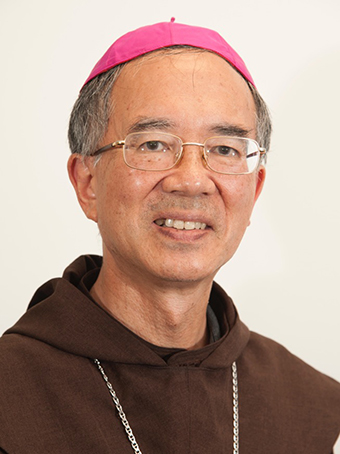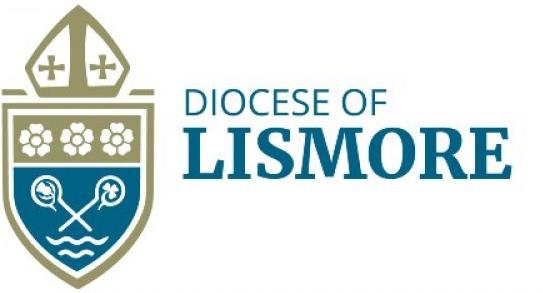Voluntary Assisted Dying
Compassionate Dying and information for Catholics
I have come that you may have life, and life to the full. (John 10:10)
Euthanasia or Voluntary Assisted Dying (VAD) is a major legal, ethical, and social issue. Five states have passed legislation allowing VAD. NSW is the last State to put forward legislation. There is before the NSW parliament a bill proposing VAD, defined as ‘the administration of a VAD substance to a patient if the request and assessment process has been completed’. This process is called voluntary as it assumes that the person is competent consent to VAD.
Supporters of this bill are seeking to give individuals the ability to choose the time of their death. They aim to control the dying process, making it painless, clean, and quick. Unfortunately dying, like human life itself, is not that simple, is never without discomfort, and cannot be fully controlled. Often medical predictions of death are wildly inaccurate. This bill will require health care professionals and aged care facilities to assist this process, even if they object in conscience.

Palliative Community Care
Death, like birth, is a natural part of life. It should be cherished, celebrated, remembered with joy and come in time with the element of mystery. Dying is a necessary process to prepare to leave this human world. Palliative Care supports this process, optimising quality of life. While medicines can alleviate physical suffering, it is compassionate patient presence which alleviates spiritual and emotional pain.
Since all humans are interconnected, dying can be a communal process. It is not simply an individual choice. First Nations communities lead the way by honouring the dying. Compassionate dying calls us to suffer with a person through to death, to share their struggle and affirm their place in community. Unfortunately, the vulnerable of our society may be the ones disproportionately affected by this legislation. VAD will end a life but not solve any issues. The hurt caused will remain.
A Compassionate Community
As we age and decline physically, we gradually lose control over our lives. We all like to have control over our destiny, but the human condition precludes our control over nature, and illness may interfere with our capacity to provide informed consent for VAD.
Compassionate dying.
Regardless of religious belief, this is a sacred time to prepare for the next journey.
The Church will always proclaim that human life is sacred. Beginning with the dignity of the human person, the Church promotes the good of all people and stands in solidarity with the suffering and vulnerable. We have an obligation to make ourselves the neighbour of every person and respond with compassion as we journey with them.
Action
The possibility of euthanasia legislation in New South Wales will affect every single one of us, regardless of our age or health. It makes sense that each one of us is informed of the intentions and ramifications of any VAD legislation, so that we can have conversations with each other and make representations to parliamentarians as you see fit.
Please learn more about this legal, ethical and social issue and make your voice heard.
Further resources
- Send a message to the NSW Parliament HOPE – Preventing Euthanasia & Assisted Suicide Click here to send your message to the NSW Parliament today: Protect vulnerable people by rejecting this dangerous bill (noeuthanasia.org.au)
- Statement from the New Zealand Catholic Bishops Conference Catholic bishops issue guidelines for working with people who choose “assisted dying” – The Catholic Church in Aotearoa New Zealand
- Australian Care Alliance, Care and Compassion: Opposing Assisted Suicide australiancarealliance.org.au
A unique and compassionate palliative care service at St Vincent’s.
The Diocese of Lismore is unique in that it is the only Diocese in Australia that owns and operates an acute medical and surgical hospital, St Vincent’s Lismore.
The Palliative Care Unit at St Vincent’s Hospital provides unique and compassionate in-patient care for patients living with a life-limiting or terminal illness in the Far North Coast community. The unit also accepts public patients, so you don’t need private health cover to access the service.
A multidisciplinary team, including specialised palliative care nurses and specially trained volunteers, use a holistic approach to meet a patient’s physical, emotional, spiritual and social needs during their end-of-life journey.
The palliative care provided at St Vincent’s is different from the community services offered by the Lismore Base Hospital. Patients can be admitted at any stage of their illness (not just acute), including preparing families or patients who need assistance with end-of-life care at home.
The dedicated nine-bed unit offers a range of services including pain and symptom control and management, mobility support, speech therapists, dieticians and social work services, and pastoral care. The unit also works closely with GPs to fulfil the families and patients’ wishes, providing continuity of care or handing over care to the unit.
St Vincent’s Hospital Medical Officer, Dr Michael Lambrou said “Our Palliative Care Unit works with GPs in a way that best suits them and their patients. It’s good for patients to see a friendly face and reassuring to know their GP is still on-hand.”
“Where possible we aim to fulfil families and patients’ wishes and to be as flexible as we can,” said Dr Lambrou.

